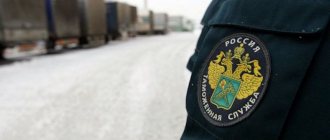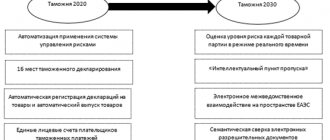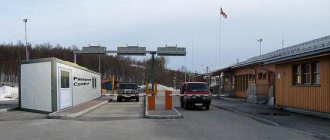31.08.2016
State policy in relation to export control is part of a general set of measures to implement Russia’s political course within the country and abroad. The main goal it pursues is to ensure the security of the country and protect the economic, political and military interests of the state. At the same time, export control of goods is intended to ensure compliance with the international obligations of the Russian Federation in terms of limiting the proliferation of WMD (weapons of mass destruction).
KEC permission to export products subject to comprehensive control
A permit from the Export Control Commission of the Russian Federation or a KEC permit gives the right to carry out foreign economic transactions with products that are not subject to the lists (lists) of controlled goods and technologies, but which can be used by a foreign state or a foreign person to create weapons of mass destruction, their means delivery, other types of weapons and military equipment. It is necessary to prevent the acquisition of such goods in the interests of persons in respect of whom there is information received in accordance with the legislation of the Russian Federation about their participation in terrorist activities.
- Concept and purposes of export controls
Export control is a set of measures ensuring the implementation of the procedure established by law for carrying out foreign economic activity in relation to:
- goods, information, works, services, results of intellectual activity (rights to them), which can be used in the creation of weapons of mass destruction, means of their delivery, other types of weapons and military equipment, or in the preparation and (or) commission of terrorist acts (hereinafter - controlled goods and technologies). Export control measures are established in accordance with the Federal Law of July 18, 1999 No. 183-FZ “On Export Control”, and the implementation of state policy in the field of export control is carried out by the Federal Service for Technical and Export Control (FSTEC of Russia);
- weapons and military equipment, as well as information, works, services, results of intellectual activity (rights to them), which are products for military purposes. Export control measures are established in accordance with Federal Law No. 114-FZ of July 19, 1998 “On military-technical cooperation of the Russian Federation with foreign states,” and control and supervision in the field of military-technical cooperation is carried out by the Federal Service for Military-Technical Cooperation (FSMTC of Russia).
The main objectives of export controls are:
- protecting the interests of the Russian Federation;
- implementation of the requirements of international treaties of the Russian Federation in the field of non-proliferation of weapons of mass destruction, their means of delivery, as well as in the field of control over the export of military and dual-use products;
- creating conditions for the integration of the economy of the Russian Federation into the world economy;
- countering international terrorism.
Export control is carried out on the basis of the following principles:
- conscientious fulfillment of the international obligations of the Russian Federation in the field of non-proliferation of weapons of mass destruction, their means of delivery, as well as in the field of control over the export of military and dual-use products;
- legality, transparency and accessibility of information on export control issues;
- priority of state security interests;
- implementing export controls only to the extent necessary to achieve its objectives;
- harmonization of export control procedures and rules with generally accepted international norms and practices;
- interaction with international organizations and foreign states in the field of export control in order to strengthen international security and stability, prevent the proliferation of weapons of mass destruction and their means of delivery.
- Lists (lists) of controlled goods and technologies
Lists (lists) of controlled goods and technologies are approved by decrees of the President of the Russian Federation. There are currently six such lists:
- List of nuclear materials, equipment, special non-nuclear materials and related technologies subject to export control, approved by Decree of the President of the Russian Federation of February 14, 1996 No. 202.
- List of dual-use equipment and materials and related technologies used for nuclear purposes, subject to export control, approved by Decree of the President of the Russian Federation of January 14, 2003 No. 36.
- List of dual-use goods and technologies that can be used in the creation of weapons and military equipment and in respect of which export control is carried out, approved by Decree of the President of the Russian Federation of December 17, 2011 No. 1661.
- List of microorganisms, toxins, equipment and technologies subject to export control, approved by Decree of the President of the Russian Federation of August 20, 2007 No. 1083.
- List of equipment, materials and technologies that can be used in the creation of missile weapons and in respect of which export control has been established, approved by Decree of the President of the Russian Federation of August 8, 2001 No. 1005.
- List of chemicals, equipment and technologies that can be used in the creation of chemical weapons and for which export control has been established, approved by Decree of the President of the Russian Federation of August 28, 2001 No. 1082.
Foreign economic transactions involving the transfer of controlled goods and technologies to a foreign person must be carried out with a written undertaking from the foreign person that these goods and technologies will not be used for the purpose of creating weapons of mass destruction and their means of delivery.
At the same time, Russian persons are prohibited from concluding, carrying out foreign economic transactions with controlled goods and technologies, or participating in them in any other way if such persons are reliably aware that they will be used by a foreign state or a foreign person for the purpose of creating weapons of mass destruction and means of their delivery. or for the preparation and (or) commission of terrorist acts.
In addition, in accordance with Article 20 of the Federal Law of July 18, 1999 No. 183-FZ “On Export Control,” Russian participants in foreign trade activities are required to obtain permission from the interdepartmental coordinating body for export control (such a body is the Export Control Commission) to carry out foreign economic transactions with goods, information, works, services, results of intellectual activity (rights to them) that are not subject to the specified lists, in cases where Russian participants in foreign trade activities have reason to believe that these goods, information, works, services, results of intellectual activities (the rights to them) can be used to create weapons of mass destruction, means of their delivery, other types of weapons and military equipment or are acquired in the interests of persons in respect of whom there is information about their participation in terrorist activities, or if Russian participants in foreign economic activity are informed in in writing about this to the FSTEC of Russia.
- Export control methods
Export control methods include:
- identification of controlled goods and technologies;
- permitting procedure for carrying out foreign economic transactions with controlled goods and technologies;
- customs control when performing customs operations in relation to controlled goods and technologies;
- organizing and conducting inspections of compliance by Russian participants in foreign trade activities with requirements in the field of export control and taking measures to suppress and (or) eliminate the consequences of identified violations.
Let's look at each method in more detail.
- Identification of controlled goods and technologies includes:
- establishing the conformity of specific goods, information, works, services, results of intellectual activity that are objects of foreign economic transactions, with goods and technologies included in the lists (lists) approved by decrees of the President of the Russian Federation;
- determination of the prohibitions and restrictions on foreign economic activity in force in relation to such goods, information, works, services, results of intellectual activity, established by the legislation on export control.
Identification can be carried out by organizations that have received special permission to carry out activities to identify controlled goods and technologies.
The results of identification of controlled goods and technologies are reflected in the identification conclusion.
- The permitting procedure for carrying out foreign economic transactions with controlled goods and technologies provides for licensing or another form of state regulation.
FSTEC of Russia issues the following types of licenses for foreign economic transactions with controlled goods and technologies:
- One-time license - issued for the supply/transfer of controlled products under one agreement (contract, agreement) for one type (i.e. one HS code) for a period of up to 1 year. A one-time license can be issued for both the export and import of goods. Also, a one-time license is issued in the case of temporary export of controlled goods with transfer to a foreign person and subsequent return to the territory of the Russian Federation.
The basis for issuing a one-time license is the conclusion of a state examination of a foreign economic transaction conducted by the FSTEC of Russia.
- General license - issued to carry out foreign economic transactions with one type of product (determined by one HS code) for a certain quantity of goods in certain countries, without indicating a specific foreign person who is the recipient of these goods or technologies. Unlike one-time licenses, general licenses are issued only for export supplies. A condition for obtaining a general license is accreditation of an in-house export control program. The validity period of the general license is unlimited.
In relation to foreign states that adhere in their domestic and foreign policies to generally recognized principles and norms of international law in the field of non-proliferation of weapons of mass destruction and their means of delivery, comply with the requirements of international export control regimes and (or) participate in regional integration together with the Russian Federation, a regime of unlicensed export of certain types of controlled goods.
Such unlicensed export of certain types of controlled goods has the right to be carried out only by Russian legal entities included in the register of Russian participants in foreign trade activities that are allowed to carry out such exports.
There are also other permitting documents:
- Permission from the Export Control Commission of the Russian Federation.
Obtaining such permission is necessary in the following cases:
- export of controlled products and technologies in the form of technical data without their transfer to a foreign person with subsequent return to the territory of Russia;
- carrying out foreign economic transactions with products/services that are not subject to control lists/lists, in cases where Russian participants in foreign economic activity have reason to believe that these products/services can be used to create weapons of mass destruction, their delivery vehicles, other types of weapons and military technology.
- Conclusion of an independent identification examination on the non-belonging of exported products to controlled products.
Identification certificates must be issued with a validity period of at least one year without specifying the contract (agreement) on the basis of which the foreign economic transaction is carried out, provided that the supply of such goods is carried out to a country that is not subject to sanctions of the UN Security Council or special economic measures, established by the President of the Russian Federation, as well as on the territory of which there is no armed conflict, and addressed to the same foreign recipient for whom there is no information about his involvement in military programs.
Identification examination is carried out in cases where the exported goods and technologies, by their general technical name, technical and operational characteristics:
- are included in the list of goods presented in the control lists by their general technical name;
- are not subject to control lists, but it is known that the end user, due to the nature of his activity, can use them to create weapons, military equipment, weapons of mass destruction and their delivery vehicles;
- are not included in the list of goods in the control lists by their general technical name, but according to the assigned HS code they fall under the list of codes used in the control lists.
Russian participants in foreign economic activity have the right to entrust the identification of controlled goods to an organization that has received a special permit to carry out activities to identify controlled goods and technologies.
- Conclusion of the FSMTC of Russia on the classification of exported/imported products as military products.
If the customs authority requires confirmation that a product is not classified as a military product, the Russian participant in foreign economic activity is obliged to obtain a conclusion from the FSMTC of Russia.
- Customs control when performing customs operations in relation to controlled goods and technologies is carried out both during their import and export through the use of customs control forms established by the EAEU Customs Code ;
- Organizing and conducting inspections of compliance by Russian participants in foreign trade activities with requirements in the field of export control and taking measures to suppress and (or) eliminate the consequences of identified violations.
Such inspections are carried out in order to ensure compliance with the legislation of the Russian Federation in the field of export control if there is reason to believe that this legislation is not being complied with or is not being fully complied with.
For this purpose, FSTEC of Russia has the right to appoint and conduct scheduled and unscheduled inspections of Russian participants in foreign economic activity carrying out foreign economic transactions with controlled goods and technologies.
- Problems of export control and ways to solve them
The Analytical Center under the Government of the Russian Federation, together with JSC Russian Export Center, formulated the following problems when carrying out export control:
- Long lead times for document preparation and high costs of mediation.
Relatively long lead times for preparing permits (30–45 days) in some cases may lead to the client abandoning the transaction.
In addition, to speed up obtaining a license, exporters are forced to use the services of intermediaries, which leads to an increase in the cost of the export transaction.
For example, in Singapore the standard period for issuing a license is 5 days, in Canada - 10 days, in Australia - 15 days, in Germany - 30 days.
- Redundancy of the need for export controls in relation to certain types of products.
For a number of products that are widely available on world markets (for example, petrochemical products or medical drugs), exporters are forced to obtain an export permit, which increases the delivery time and cost, and, consequently, reduces their competitiveness.
In this regard, it is possible to introduce a notification procedure for the export of certain types of controlled products, which would not provide for the need to obtain permits, but would only involve informing the relevant regulatory authorities, including the FSTEC of Russia. This procedure is partially implemented within the framework of the license-free export regime.
- Insufficient awareness of foreign trade participants about export control requirements.
Such lack of awareness leads to errors in the independent preparation of documentation and refusal to issue permits by the FSTEC of Russia.
In addition, uncertainty for exporters regarding the need to obtain an export permit leads to an increase in the number of applications to the FSTEC of Russia, which in turn leads to an increase in the average processing time.
One way to solve this problem could be to improve the skills or train existing employees of exporting companies involved in foreign trade activities.
Thus, in Germany, Canada and Singapore there is a single electronic platform. In addition, guides, trainings and brochures on the export control procedure are available on the websites of the relevant departments.
- Lack of awareness among exporters about the status of applications for permits.
The lack of up-to-date information from foreign trade participants who have applied for permits makes it impossible to timely take the necessary measures to correct or supplement the required documents. In this regard, the time frame for issuing permits may increase, since companies are forced to wait for feedback from the FSTEC of Russia.
- The need to obtain a license to supply products provided that the technical characteristics of the product remain unchanged.
When making transactions with products whose technical characteristics do not change, companies have to submit the same set of documents to obtain the same permits. In this regard, companies are forced to incur additional cost and time costs when carrying out export transactions with the same products.
At the same time, small and medium-sized enterprises do not meet the conditions for obtaining general licenses or do not have the ability to ensure compliance with the requirements, including the availability of individual certified specialists.
The procedure for obtaining an export license can be facilitated by training or advanced training of existing employees of exporting companies, including within the framework of export control training centers.
In addition, it is advisable to consider the possibility of increasing the validity period of permits and/or multiple extensions of permits.
KEK permit for temporary export
In addition, KEC permission is issued for the export of goods and technologies from the Russian Federation in the form of technical data included in the lists (lists) of controlled goods and technologies approved by decrees of the President of the Russian Federation, without transfer to a foreign person for the purpose of temporary use on the territory of a foreign state with subsequent return to RF.
Thus, a permit from the export control commission is issued for temporary export if the products and (or) technology will not be transferred to a third party (for example, participation in exhibitions, conducting research, etc.).
When customs clearance of export or re-export of controlled products, a License is required. The export control permit is indicated in column 44 of the customs declaration (code 01153 - “Permit (confirmation) for the import (export) of goods subject to export control, issued by the authorized state body of the member states of the Eurasian Economic Union in the field of export control”).
When export controls in Russia are established on goods
In our country, systemic principles of export control were developed back in 1992, and now its structure is quite developed. The fundamental principles of the functioning of this system have been approved, and the zones of authority and responsibility between executive bodies of state power have been differentiated. An effective legal framework has been created, which is constantly being improved. Basically, export control of goods in Russia meets the relevant requirements of international regimes.
Today in the Russian Federation, the Federal Service for Fuel and Energy Complex (technical and export control), abbreviation FSTEC, is authorized to deal with export control issues. It operates on the basis of the Law of July 18, 1999 “On Export Control” (No. 183-FZ).
Each list of controlled products (technologies) is subject to approval by the President of the Russian Federation in the relevant decrees, of which there are six in Russia. In the USA, for example, this is a joint common list, as well as in the EU states.
In order to conduct a foreign economic transaction involving the transfer of controlled products (goods or technologies from the above-mentioned lists) to a foreign partner, a license must be issued. The term “transfer” implies the following forms of delivery: export, postal transfer, transmission by electronic communication, etc.
List of attached documents
- Application for the provision of services (not required when ordering services through the website);
- List of research objects;
- An agreement (contract, agreement) with appendices and additions (amendments) or other document on the basis of which a foreign economic transaction is carried out, and if such a contract has not been concluded or is absent - materials revealing the content, nature and conditions of the proposed foreign economic transaction;
- Documents that allow you to evaluate the product: technical characteristics of the product being moved (technical description indicating the parameters (characteristics), data on the structural materials used, passport, technical specifications, general view drawings, assembly drawings, drawings of individual components);
- Information about the scope of application of the transported products;
ATTENTION! This list of documents is not exhaustive. The final list of documents to be submitted to the FSTEC of Russia depends on the properties of the controlled goods and the terms of the transaction. A complete list of documents with our recommendations for their preparation will be sent to you after your application has been reviewed by specialists.
If the above documents were previously submitted for an identification examination or consultation, it is sufficient to provide a Letter of Description, where all the necessary information was previously indicated.
Regulatory document
The regulatory document was adopted by Decree of the Government of the Russian Federation of August 15, 2005 N 517 “On the procedure for obtaining permission from the Export Control Commission of the Russian Federation to carry out foreign economic transactions with goods, information, works, services, results of intellectual activity (rights to them), which may be used by a foreign state or a foreign person for the purpose of creating weapons of mass destruction and their means of delivery, other types of weapons and military equipment, or acquired in the interests of organizations or individuals involved in terrorist activities.”





